The world of marketing is witnessing a paradigm shift, with Artificial Intelligence in Personalized Marketing becoming a driving force for businesses.
This innovative approach leverages cutting-edge AI technologies to deliver highly customized experiences and strategies, enabling marketers to stay ahead of the competition and adapt to the ever-changing landscape.
In this comprehensive guide, we will explore how artificial intelligence is revolutionizing marketing, the various AI technologies that enable this transformation, and the future of AI in marketing.
Let’s dive into this exciting world and discover how your business can harness the power of AI for personalized marketing.
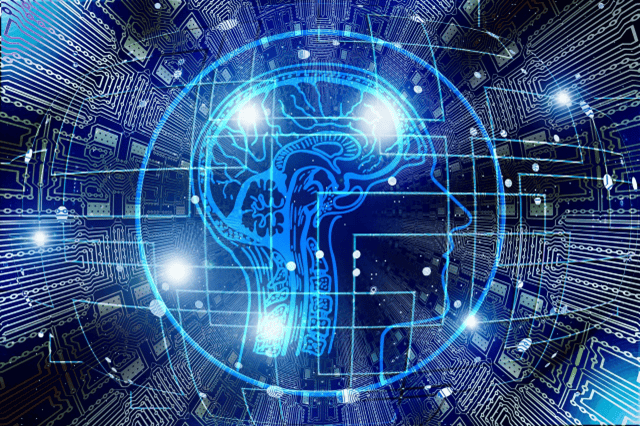
How Marketers Use AI Today
How reasonable are such expectations? Consider that as of last year, 80% of marketing professionals indicated they were using AI in a certain way. Marketing experts, when questioned about the ways in which AI and ML were already improving campaigns, mentioned multiple benefits.
- Repetitive task automation
- Data mining from massive datasets
- Campaign personalization
- Estimating conversion rates
- Email marketing timing optimization
The current leader in the use of AI technology in marketing provides benefits in most of these fields. According to a recent survey, 50% of marketing professionals see improved targeting as a primary benefit of using AI and ML in their work.
Examples of AI-powered personalization companies
Many companies use AI-powered personalization to improve customer experience and commercial performance. Here are some leading examples.
Amazon is the biggest online store. The company promotes AI-powered items based on browsing and purchase history. Amazon claims its recommendation algorithm raised revenue by 35%.
Netflix streams movies, TV, and documentaries. Machine learning algorithms recommend TV and movies to clients based on watching history and interests. Personalization has increased user engagement and retention to 80% of streaming hours. Personalization has kept Netflix customers.
Sephora markets cosmetics internationally. AI-powered customization engages buyers. The business matches users’ facial features with cosmetics using machine intelligence. Sephora believes this suggestion tool has boosted customer satisfaction and trust since consumers are more inclined to buy.
The Impact of Artificial Intelligence on Marketing
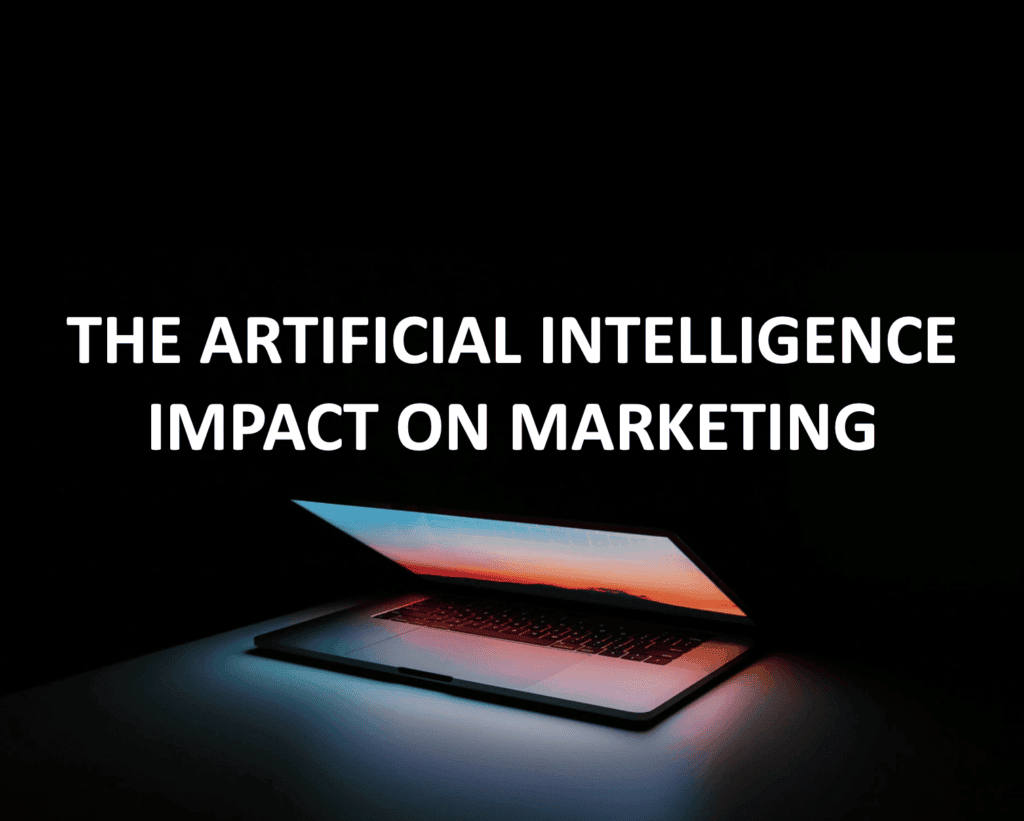
Source: businessesgrow.com
There was a market worth slightly more than $12 billion by 2020 for AI marketing tools. While that was amazing, it paled in contrast to the over $325 billion expected to be spent on artificial intelligence worldwide by 2021. However, the actual potential of AI in marketing is not reflected in the present market size. If you think about future growth projections, you’ll see that.
Businesses are able to maintain lower operating expenses by adjusting their budgets, and at the same time, they are able to simplify the work their workers do. In addition to saving time, automation of the sales methods is another benefit.
Experts predict that by next year, the industry for artificial intelligence in marketing will have grown to over $35 billion, doubling in size over the past four years. The marketing sector as a whole will have tripled in size by 2028, according to experts in the field. Researchers predict that by the end of the decade, marketers will have spent close to $108 million on artificial intelligence.
Artificial intelligence has led to a significant change in the way marketing is conducted. It empowers marketers to create highly personalized campaigns, providing valuable insights into customer behavior and preferences. AI-driven marketing strategies can result in increased customer engagement, improved brand loyalty, and, ultimately, higher revenue. Here are some key areas where AI is making a difference:
1. Enhanced Social Media Monitoring
AI-powered social media monitoring tools have taken social listening to a whole new level. These tools use advanced algorithms to analyze vast amounts of data in real-time, enabling marketers to gain a deeper understanding of their audience’s needs, preferences, and sentiments. This allows businesses to anticipate customer behavior and make informed strategic decisions for better results.
2. Streamlined Content Creation
Artificial intelligence can also aid in the content creation process. AI-powered platforms can analyze voice-of-customer data to inform marketers about the type of content their target audience is most interested in. Furthermore, these platforms can suggest keywords and triggers help businesses develop compelling posts, respond effectively to customer comments, and create engaging product descriptions. Additionally, tools like Canva Docs include built-in AI capabilities to streamline content creation without ever leaving the page, allowing users to effortlessly generate content ideas.
3. Improved Marketing Automation
AI-driven marketing automation tools, as well as content automation instruments, can significantly enhance operational efficiency. By automating tasks such as scheduling posts, categorizing messages, and maintaining a consistent brand voice, businesses can focus on more strategic marketing initiatives. Moreover, AI-powered tools can help to reduce response time, leading to higher customer satisfaction.
4. Advanced Audience Segmentation and Personalization
Artificial Intelligence in Personalized Marketing allows businesses to segment their audience based on various factors, ensuring that marketing campaigns are targeted at the right customers. Additionally, AI-driven programmatic advertising can streamline the digital ad selection process, resulting in more personalized marketing tactics, improved return on investment (ROI), and increased lifetime value.
5. Comprehensive Data Analysis for Customer Insights
AI and machine learning algorithms can provide valuable customer insights by analyzing a wide range of data. This enables businesses to quickly adapt to changing market trends, prioritize budgets, and deepen customer relationships.
6. Effective Reputation Management
AI-enabled reputation management tools can help businesses monitor negative sentiments and address potential brand threats before they escalate. By providing proactive customer care and selecting the right influencers and ambassadors, businesses can protect and enhance their brand reputation.
7. Competitive Intelligence
Artificial intelligence can also help businesses identify opportunities to improve their products and services, as well as fill market gaps. By analyzing competitors’ share of voice and social performance, businesses can make strategic adjustments to maintain a competitive edge.
8. Multilingual Support
AI marketing tools can effortlessly extract customer insights from multilingual data, allowing businesses to develop effective strategies for different regions. This ensures that their social media posts, responses, and advertisements are culturally appropriate and resonate with the target audience.
9. Access to Specialized Expertise
Implementing AI in marketing requires significant investments in technology, resources, and talent. For most small and medium-sized businesses, hiring top pitch deck consultants with expertise in AI and digital marketing may be the most viable approach.
These consultants have a proven track record of helping businesses leverage AI to enhance their marketing capabilities. They can provide end-to-end solutions, from selecting the right tools to developing data-driven strategies to measuring ROI. By partnering with expert consultants, businesses can accelerate their AI journey, reduce risks, and achieve transformational success.
10. Text and voice search optimization
Websites are now optimized for voice search using artificial intelligence, and this new form of searching is often combined with the more traditional text-based methods by marketers. Artificial intelligence (AI) allows a variety of voice-based solutions that can understand the user’s intent and respond with natural, human-sounding conversational speech.
Results from voice-activated search engines have revolutionized online advertising. You may just ask the device what you need, and it will give you the information you need. This voice search feature also supports many languages.
AI Technologies Powering Personalized Marketing
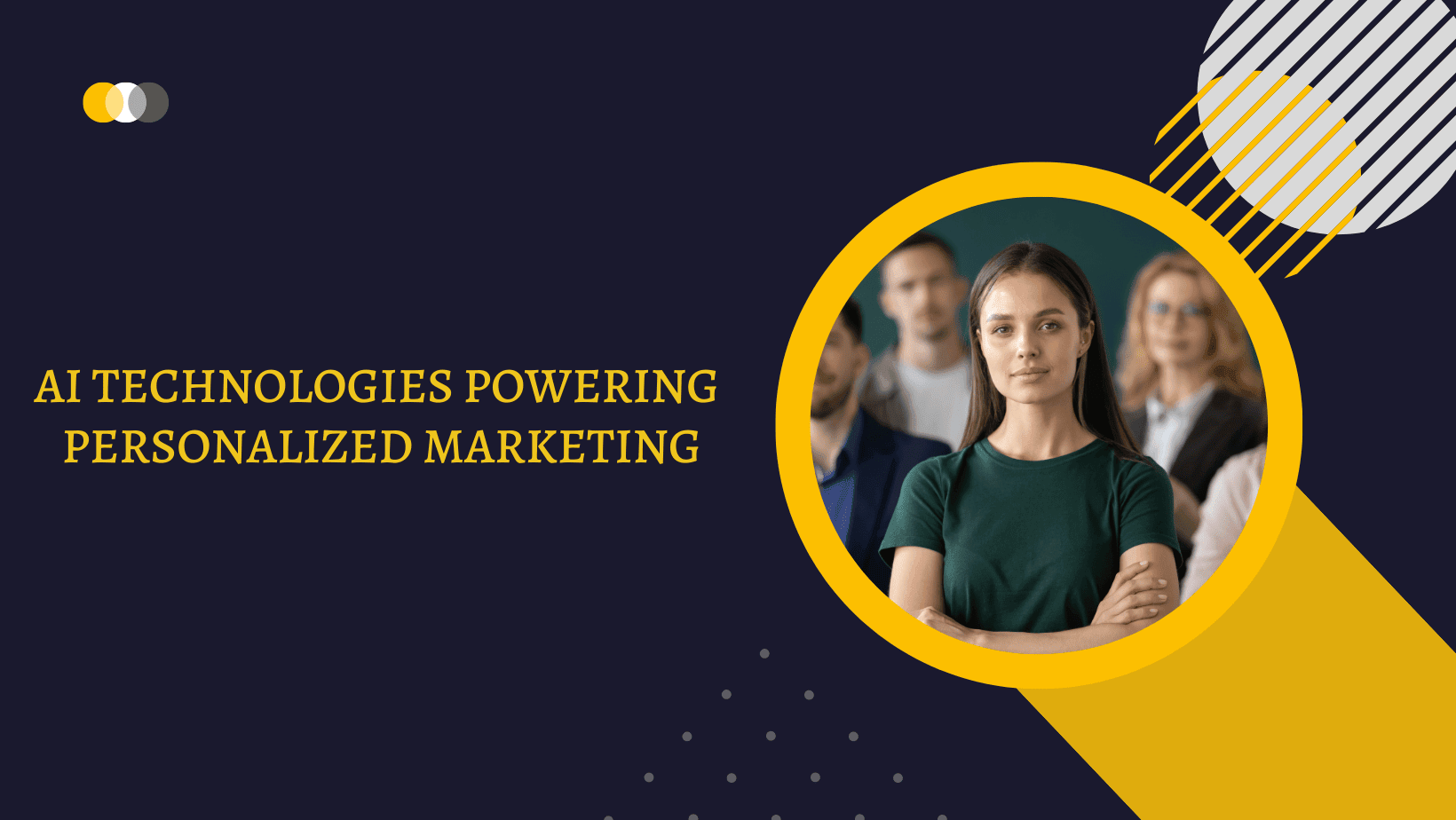
Several AI technologies work in tandem to provide the insights and capabilities necessary for personalized marketing. Some of these key technologies include:
1. Machine Learning
Machine learning (ML) algorithms analyze social data to provide high-precision insights into customer experience, audience sentiment, and other marketing drivers. As these models process more data over time, they become more accurate and efficient.
2. Natural Language Processing (NLP)
NLP enables AI marketing tools to understand and interpret social listening data in a semantically and contextually accurate manner. This allows businesses to extract critical information from a wide range of sources, such as posts, messages, reviews, and comments. The objective is to leverage NLP in customer service to acquire valuable insights into customer’s behavior, preferences, interests, and needs.
3. Semantic Search
Semantic search algorithms help AI tools understand the intent of phrases or lexical strings without relying solely on keywords. By categorizing relevant keywords into semantic clusters, these algorithms can provide more accurate insights into customer experience and brand performance.
4. Named Entity Recognition (NER) and Neural Networks
NER identifies essential entities in large datasets, while neural networks store and process interconnected data points to provide more precise results through deep learning.
5. Sentiment Analysis
Sentiment analysis measures customer sentiment from feedback data, helping businesses evaluate and improve their social media content, sales call planning, Call routing, and marketing strategies, and brand management.
The Future of Artificial Intelligence in Personalized Marketing
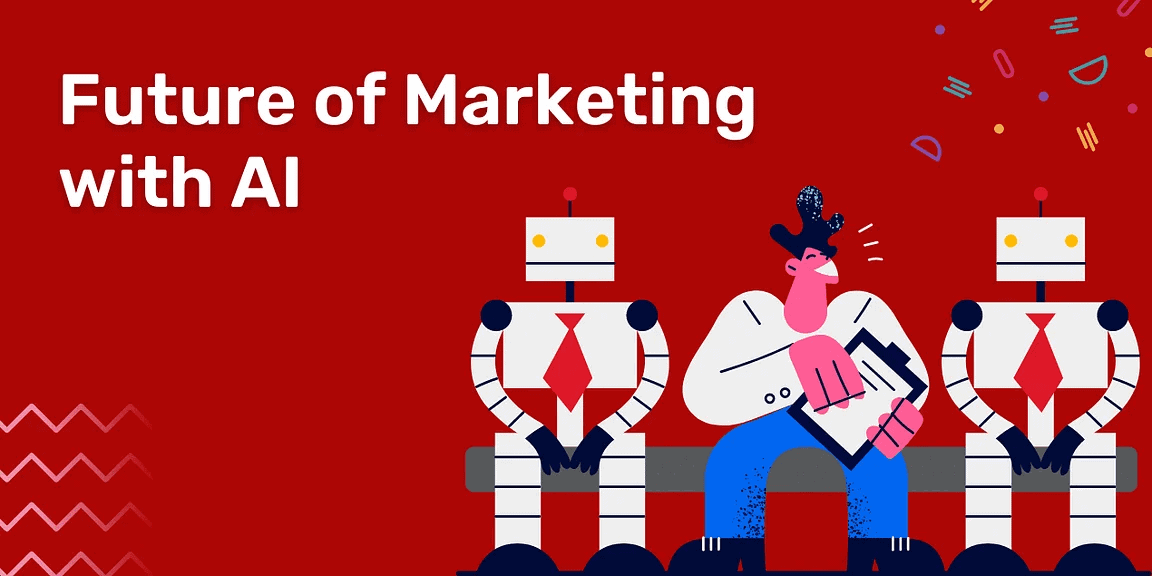
Source:yourstory.com
As AI continues to advance rapidly, it is expected to reshape the marketing landscape in several ways:
1. Computer Vision
Computer vision enables AI marketing tools to derive insights from non-text digital data, such as images and videos. This technology has numerous applications, from product defect detection to facial recognition for improved biometric authentication.
2. AI Chatbots
Conversational AI, in the form of virtual agents and intelligent chatbots, is set to transform traditional marketing. AI chatbots can boost engagement, generate leads, and provide valuable customer insights for predictive and prescriptive marketing.
3. Predictive and Prescriptive AI
Predictive and prescriptive analytics are already making AI marketing tools essential for businesses. These analytics help businesses develop highly targeted ads, posts, and emails, as well as anticipate outcomes and devise long-term business strategies based on past customer data.
4. Responsible AI
For AI to be truly advantageous, it must be developed thoughtfully and trained with diverse data to eliminate biases. Furthermore, data privacy, copyright, and governance rules must be considered to ensure ethical and societal implications are addressed.
Harnessing the Power of AI for Personalized Marketing
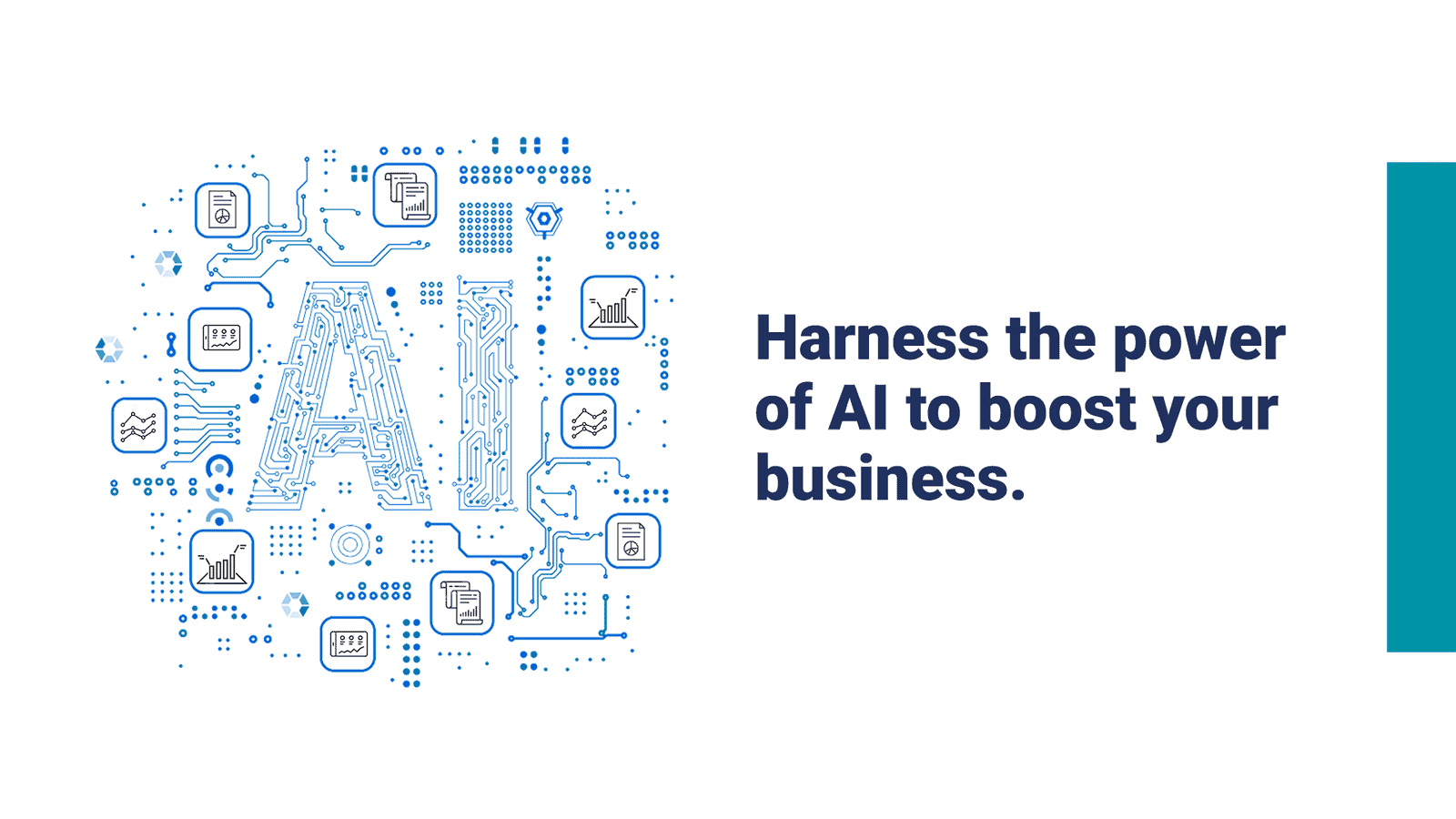
Source:airquery.com
Artificial Intelligence in Personalized Marketing provides businesses with the tools and insights needed to grow and succeed in today’s dynamic marketplace. Businesses have the potential to completely reinvent their approach to customized marketing if they make use of the power of artificial intelligence (AI) and embrace the trends of the future. The following are some concrete measures that may be taken to make efficient use of AI:
Define Specific Objectives
To begin, you will need to choose which marketing objectives and KPIs you want to enhance using AI-powered targeted marketing.
Clarity on objectives can help you correspond your AI activities with the business goals you have set for your company, whether those objectives involve boosting consumer interaction, improving conversion rates, or building brand loyalty.
Invest in Data and technical
Businesses require high-quality data and the necessary technical infrastructure to use AI successfully. This involves developing investments in dependable systems for the collecting of data, facilities for the storage and processing of data, as well as AI-based tools and platforms.
It may also require forming partnerships with AI suppliers or consultants that specialize in the field in order to guarantee the successful use and integration of AI technology.
Increase Your Cross-Functional Expertise
Integrating AI into customized marketing demands a methodology that takes from a variety of research. Create a team with a wide range of expertise by recruiting people with backgrounds in marketing, data science, artificial intelligence, and other relevant fields.
You will be assisted in the development of complete plans, the implementation of AI technology, and the measurement of the effect of customized advertising efforts by this cross-functional team.
Check and refine
Artificial intelligence (AI) technologies and algorithms are always being refined through testing and iteration. It is important to experiment with different approaches, evaluate the results, and refine them based on the lessons that were learned.
Adopt a mindset that allows you to experiment with AI-powered tactics, learn from the data, and enhance the efficiency of your individualized marketing campaigns.
Track and Modify
Constantly assess the results of your AI-driven individualized marketing efforts, and be prepared to make improvements as needed. Get real-time insights into customer behavior, marketing performance, and return on investment with analytics and reporting tools powered by AI. Using this new information, make improvements to your strategy as well as processes to ensure they continue to reflect the needs of your target audience and the developments in your field.
Wrapping It Up
By leveraging AI technologies like sentiment analysis, NLP, virtual agents, and more, businesses can develop proactive marketing strategies that drive customer engagement, loyalty, and retention.
Investing in AI can help your business build a stronger, more robust marketing strategy that adapts to the changing landscape and ensures long-term success. Embrace the future of marketing and tap into the potential of artificial intelligence to transform the way you conduct targeted marketing.


